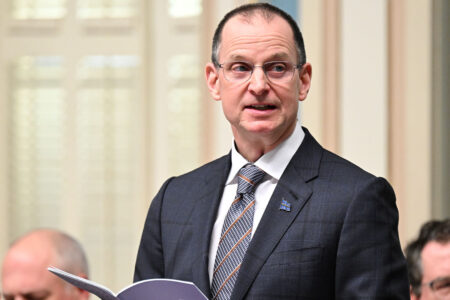
Much has been written about the roles members of Parliament play, but surprisingly little is publicly known or discussed about Canada’s parliamentary staffers. The pejorative label “the boys in short pants” has recently been used to describe some staffers; others have been called “ruthless, cutthroat psychopaths” and “25-year-old jihadis.” (Those latter two quotes were from left-leaning party leaders!) These labels are undeserved and not a true portrait of political staffers. It comes from a misunderstanding and lack of public knowledge of the role of staffers. While there is no one-size-fits-all approach to being a staffer, it’s worth trying to help the public better understand the public servants who work in some of Canada’s most important offices.
Generally speaking, there are four types of staffers: those in an MP’s constituency office, ministerial staffers, Senate staffers and staffers in an MP’s Ottawa office. Much has already been written about the work done by constituency staffers thanks to Peter MacLeod’s two-year research study on the topic. Likewise, Ian Brodie has written about the job descriptions of ministerial staffers, clarifying their role in navigating the bureaucracy and advising and serving their ministers. The roles of these two types of staffers are relatively well known, so this article will expand on the work of an MP’s Ottawa staffers. An MP commonly employs six to eight staffers for the Ottawa and constituency offices.
Staffers are some of Canada’s most important, influential, committed and hard-working public servants. Jenni Byrne, a senior adviser and election organizer for former prime minister Stephen Harper, was described as “the (other) woman behind Harper,” and Gerry Butts, a senior adviser and long-time friend to Prime Minister Justin Trudeau, has been called “Prime Minister Butts” for the gatekeeping role he plays within the Prime Minister’s Office. To cite an American example, Bob Haldeman, chief of staff to President Richard Nixon, was described as the de facto prime minister of that government: running the machinery and organizing cabinet before the president’s involvement and approval. While a Canadian prime minister’s chief of staff will never be as powerful as this example, the two positions, although in different jurisdictions and despite different models of governance, demonstrate staffers’ close proximity to and influence on the most senior government offices.
Staffers are some of Canada’s most important, influential, committed and hard-working public servants.
Many parallels can be drawn between two relationships: the one between officers and noncommissioned members (NCMs) in the military and the one between MPs and staffers. In the military, officers set broad policy objectives and define the ideal end goal. It is largely the NCMs who implement the procedures and policies that will achieve their commanders’ objectives. Parliament is strikingly similar: MPs will define a broad stance on an issue or a policy they wish to advance (“We need to lower taxes for families” or “We need to get more people into the skilled trades”). Staffers are the ones who research the issue, liaise with stakeholders, mobilize support and package everything together to make the strongest possible case for that policy stance. If their party is in government, it is largely staffers (working with a department’s public servants) who write and implement the policies so that the MP’s or minister’s objectives are achieved. Staffers are Parliament’s foot soldiers, who do the groundwork to achieve their MPs’ objectives.
Sometimes staffers pursue elected office, either to emulate or to change something they saw during their time as staffers. Just a few examples are Harper (an assistant to Progressive Conservative MP Jim Hawkes and later Reform MP Deborah Grey); Conservative MP Pierre Poilievre (an assistant to then Conservative MP Stockwell Day); Conservative MP John Williamson (director of communications to Harper as prime minister); and Liberal MPP John Fraser (assistant to Ontario Premier Dalton McGuinty). While a majority of staffers might not go so far as to pursue elected office, those who do make it clear that staffers share many of the same motivations, hardships and desire for public service as members of Parliament.
Parliamentary staffers may become involved and hired into a political office through numerous avenues. They are almost always members of the political party for which they work. Considering the highly sensitive nature of the work they perform, it would be difficult to trust someone who is not on the same team. The House of Commons recognizes a staffer’s position as one that “requires [the] utmost trust, particularly because of the politically sensitive and partisan environment in which their duties are carried out.” There are a few rare exceptions to this, such as staffers who work in the constituency office because they are close with the constituency, regardless of which party the MP represents.
Initial exposure to a political office may come through an internship organized by the party or through a parliamentary program, through volunteering with an electoral district association or through knowing someone already working for a member of Parliament. Many staffers volunteer on Parliament Hill before being hired into a paid position.
MPs are given wide discretion to manage their offices as they see fit. House of Commons Procedure and Practice notes that MPs basically have absolute authority to hire, train, fire, promote and demote their staffers. They also have complete control over staffers’ work hours, duties and salaries. Parliamentary staffers are unique public servants, serving the Government of Canada and paying into the public servants’ pension plan, but receiving no job protection and being excluded from other benefits available to other public servants. (The staff connected to the NDP caucus, however, are members of a union and receive certain protections.)
Once staffers have been hired, they need to be trained, but training can be particularly difficult for two reasons. First, the exceptionally quick news cycle and the demand for quick responses to issues leave little time to take stock and “learn” the right way to deal with an issue. Embarrassing mistakes and political problems are often solved by cutting the responsible staffer loose. Andrew MacDougall, a former director of communications to Harper, referred to this as “the dark cloud of knowing that your next mistake could end up being your last.” Second, there is large turnover of staffers leaving for other MPs’ offices, a job in the public service, a job in the private sector or a return to school. For this reason, there is usually little time (perhaps a few days) for new hires to learn the job and get up to speed on its requirements. It is largely a “thrown into the deep end” situation.
The exceptionally quick news cycle and the demand for quick responses to issues leave little time to take stock and learn the right way to deal with an issue.
Staffers are known for working gruelling hours. While they technically sign contracts indicating a 37.5-hour workweek (eight hours, five days a week, with 30 minutes for lunch), it would be exceptionally difficult to fulfill the job’s requirements in so few hours. When the House of Commons is sitting, it is common to work from 8:30 a.m. to 6:30 p.m., although those hours are easily extended. During non-sitting weeks (“break weeks” or constituency weeks, when the MPs are in their ridings) it is much more common to work a standard eight-hour day, or less to make up for the overtime during sitting weeks.
The long hours are largely a necessity of running the government. Issues and crises happen at all hours of the day and night, and the 24/7 news cycle requires that MPs be available to respond to questions or comments very quickly. Question Period happens from 2:15 p.m. to 3:00 p.m. every sitting day (11:15 a.m. to noon on Fridays), which defines a staffer’s work schedule. Before, staffers are busy monitoring the media, doing research and consulting stakeholders. After, staffers are monitoring the impacts and determining how to further respond. It is easy to appreciate how quickly a staffer’s 10-hour day can be extended. MacDougall had it even worse: an average day in his life usually started at 5:30 a.m. and ended at 11:00 p.m., normally six days a week, for weeks on end without a break. There are many more like him, whether on the government or the opposition side.
For this exceptional work, parliamentary staffers are modestly compensated. Staffers are paid from the Members’ Office Budget (MOB), which varies depending on the population of an MP’s constituency and its geographic location. Parliament capped the 2015 annual maximum salary of a staffer at $82,800. This is the maximum for an MP’s senior staffer (the chief of staff); other full-time parliamentary staff probably receive somewhere between $30,000 and $60,000.
Those are the working conditions, but what does a parliamentary staffer do? Think of it this way: whenever you see an MP doing something, there are several staffers behind that action. Staffers work on the MP’s social media presence and respond to questions and comments. They prepare the MP for media appearances. They liaise with dozens of stakeholders, public servants, departmental officials, ministerial staff and senior government or opposition staff. Staffers monitor the media. They do research and policy analysis relevant to the MP’s interests and portfolio. Staffers write press releases, editorials and website content. They get the MP reimbursed for travel expenses and help make travel arrangements. They “staff” him or her at events, which is to say they act as a personal assistant: carrying wallets, purses, business cards, water and hand sanitizer; taking photos; getting the names and contact information of people the MP wants to follow up with; and doing anything else the MP might need. Whatever you see an MP doing, a staffer helped him or her do it.
The attributes and work of parliamentary staffers as described here are almost certainly at odds with how much of the Canadian public would describe them. But if even party leaders do not understand the role of political staffers, the Canadian public can hardly be expected to have a better grasp of their work. The dialogue around the lives of members of Parliament before, during and after politics is still growing, and with that there needs to be a better understanding of who staffers are, what they do, what motivates them and how they operate in their positions. I hope to begin to change that, and I encourage other staffers to share their experiences so that this dialogue grows. Eventually, we will have a better understanding and therefore a better respect for some of Canada’s hardest-working public servants.
Do you have something to say about the article you just read? Be part of the Policy Options discussion, and send in your own submission. Here is a link on how to do it. | Souhaitez-vous réagir à cet article ? Joignez-vous aux débats d’Options politiques et soumettez-nous votre texte en suivant ces directives.









